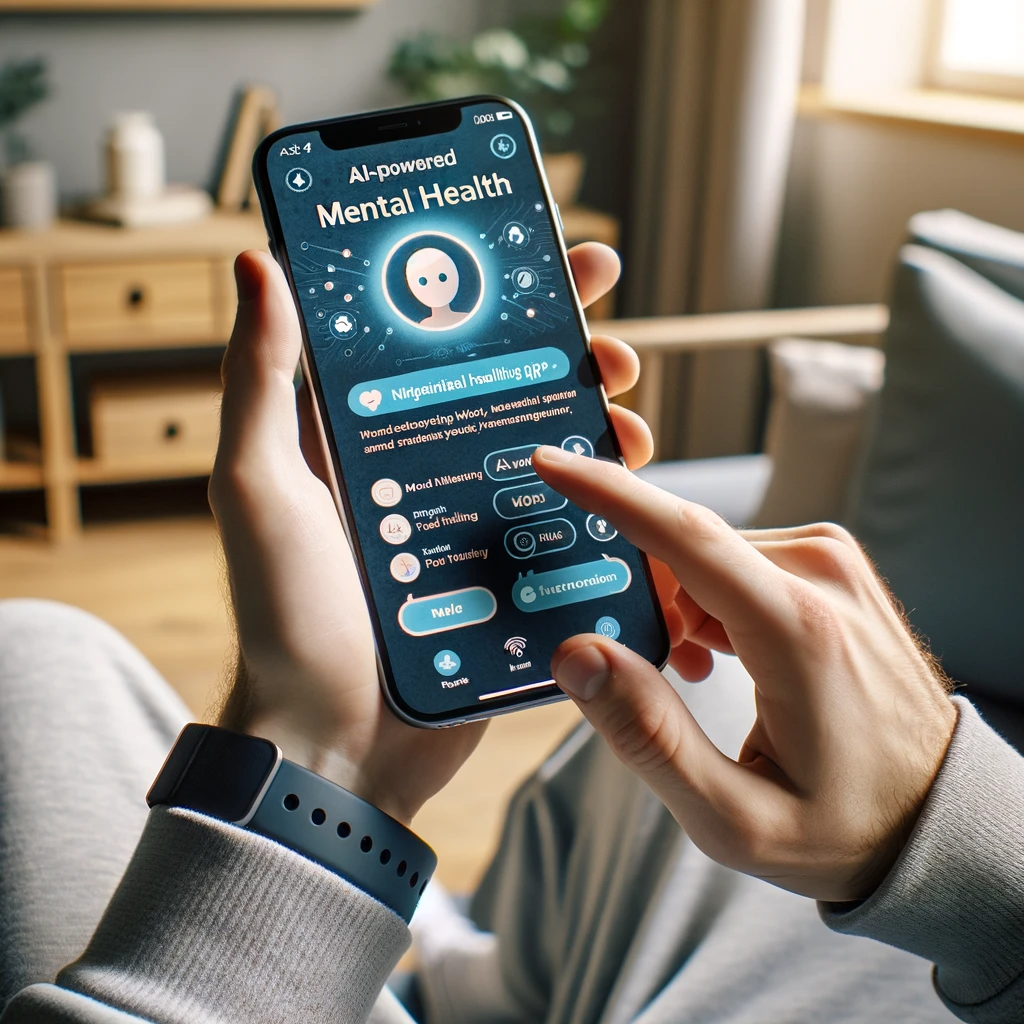Is AI the Key to Unlocking More Effective Mental Health Therapies?
In a world where the complexities of the human mind often remain shrouded in mystery, the quest for effective mental health therapies has never been more pressing. The challenges are profound: from the alarming rise in mental health disorders to the barriers of stigma and limited accessibility to care. Yet, amid these challenges, a glimmer of hope emerges in the form of Artificial Intelligence (AI). The question that beckons us today is whether AI holds the key to unlocking more effective mental health therapies.
The Current State of Mental Health Treatment
The first step in understanding the potential of AI in mental health therapies is acknowledging the severity of the current mental health crisis. According to the World Health Organization (WHO), depression is currently the leading cause of disability worldwide, affecting over 264 million people. The burden extends beyond individuals to families, workplaces, and communities, making it a global concern.
Traditional approaches to mental health treatment, including psychotherapy and medication, have undoubtedly offered relief to many. However, they often fall short in terms of accessibility, cost-effectiveness, and personalization. The demand for mental health services far exceeds the available resources, leading to long wait times for therapy and medication management.

The Role of Artificial Intelligence
Artificial Intelligence, or AI, is a transformative force that has already made significant contributions to various sectors, including healthcare. At its core, AI encompasses a spectrum of technologies that enable machines to mimic human cognitive functions, such as learning, reasoning, and problem-solving. With its ability to analyze vast datasets, detect patterns, and process natural language, AI has demonstrated immense potential in the realm of mental health.
AI-Powered Assessment and Diagnosis
One of the most promising aspects of AI in mental health is its role in assessment and diagnosis. Early detection of mental health issues is crucial for timely intervention and improved outcomes. AI algorithms can analyze behavior patterns, speech, and text to detect early signs of mental health issues.
Imagine an AI system that analyzes a person’s speech during a conversation and detects subtle changes in tone or language patterns that may indicate depression or anxiety. Such systems are already in development and hold the promise of providing early warnings and support.
Moreover, AI assists mental health professionals in making more accurate diagnoses. AI-driven tools can analyze a patient’s medical history, symptoms, and responses to specific questions to provide diagnostic insights. These tools are not meant to replace human clinicians but to enhance their decision-making and increase diagnostic accuracy.
AI-Enhanced Therapy Delivery
AI is also revolutionizing the way mental health therapy is delivered. Virtual therapists, powered by AI, can provide therapy sessions tailored to an individual’s unique needs and progress. These virtual therapists are available around the clock, reducing wait times and improving accessibility to care.
Personalization of treatment plans is another area where AI shines. Traditional therapy approaches often follow standardized protocols, but AI can adapt treatment plans based on real-time data and feedback from the individual. This personalization increases the chances of successful outcomes and reduces the risk of treatment abandonment.
Additionally, AI is making mental health support more accessible through online platforms and apps. Chatbots and virtual mental health assistants can provide immediate support, offer coping strategies, and connect individuals with professional help when needed. This accessibility is especially crucial in regions with limited access to mental health services.
AI for Predictive Analytics and Preventive Measures
The predictive capabilities of AI are changing the landscape of mental health care. AI algorithms can analyze an individual’s historical data, behaviors, and responses to predict the likelihood of relapse in conditions such as bipolar disorder or addiction. This early warning system allows for timely intervention and support.
Preventive measures, driven by AI, are another promising aspect. AI can identify triggers for mental health episodes and recommend coping strategies or lifestyle changes to prevent them. By focusing on prevention, AI aims to reduce the frequency and severity of mental health crises.
Moreover, AI is being used to analyze population data to identify mental health trends. This data-driven approach allows public health authorities to allocate resources more effectively, plan interventions, and address the specific needs of communities.
Ethical Considerations and Challenges
While the potential of AI in mental health is vast, it comes with its share of ethical considerations and challenges. Patient data privacy and security are paramount. AI systems require access to sensitive information, and safeguarding this data is crucial to maintaining trust in mental health services.
Bias and fairness in AI algorithms are other critical concerns. AI systems can inadvertently inherit biases present in the data they are trained on, potentially leading to unfair or inaccurate assessments. Developers and practitioners must actively address these biases to ensure equitable access to care.
Despite the advancements in AI, maintaining the human touch in mental health care remains essential. While AI can provide support and assistance, it should complement, not replace, human clinicians. The empathy, understanding, and nuanced judgment of mental health professionals are irreplaceable.
Real-World Examples and Case Studies
To understand the real-world impact of AI in mental health, let’s explore some compelling case studies and examples:
- Woebot: Woebot is a chatbot-based mental health assistant that uses AI to deliver cognitive-behavioral therapy. Users report reduced symptoms of depression and anxiety after interacting with Woebot.
- Predicting Suicidal Behavior: Researchers are using AI to analyze social media posts and predict suicidal behavior in individuals. Early interventions have saved lives.
- Personalized Therapy Apps: Several AI-powered therapy apps, such as Wysa and Youper, offer personalized therapy experiences, helping users manage their mental health more effectively.
- Population Health Analysis: Public health agencies are using AI to analyze mental health trends in populations. This data informs policy decisions and resource allocation.

Future Prospects and Conclusion
The future of mental health care with AI as a key player is bright. As AI continues to evolve and integrate into mental health services, we can expect more effective, personalized, and accessible therapies. The potential for early detection, predictive analytics, and preventive measures holds promise for reducing the burden of mental health disorders.
In conclusion, AI is not a replacement for human clinicians but a powerful tool to enhance mental health care. As we embrace the possibilities offered by AI, we must also address ethical concerns and ensure that AI-driven mental health solutions prioritize patient well-being and data security.
As we navigate through the evolving landscape of AI and mental health, we invite you to embark on this journey with us. Together, we will discover the possibilities, challenges, and the profound impact that AI can have on mental health therapies. This is the story of how AI may hold the key to unlocking a brighter future for mental health care—an exploration that is both timely and filled with hope.
